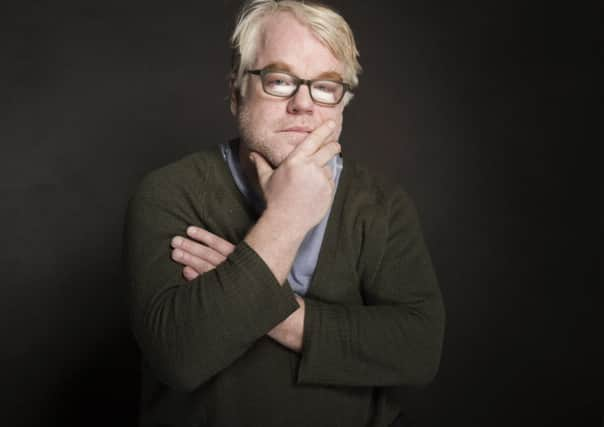Hoffman’s death a reminder to value skill of great artists in life


I received a call from BBC Breakfast on Sunday evening asking me to go on the programme and talk about the actor’s career the following morning. In the event I was surplus to requirements (the fickle world of television) but receiving the call led to me to reflect on the brilliant performances I had witnessed over the years from the corpulent actor who enjoyed a great career despite looking the antithesis of a movie idol.
The last movie I watched starring the now departed actor was last year on DVD – the very weird Synecdoche, New York, written and directed by Charlie Kaufman (hence the weird). The story of a theatre director who becomes utterly consumed by a project, one of the things I loved about this odd indie movie was that it combined two of Hoffman’s great loves – film and theatre.
Advertisement
Hide AdAdvertisement
Hide AdUnlike many of his contemporaries, Hoffman’s life as a movie star was not about being a movie star – about being seen on red carpets, photoshoots in glossy magazines – it was about the craft of acting. He tellingly received several Tony Award nominations for his work in plays like the modern classic Death of a Salesman and True West. How many movie stars would stand on a Broadway stage and walk away with such plaudits?
As his career grew, so did his understanding of his craft. He was on his way to becoming a genuinely great actor. It is why his death, apparently in the grip of drug addiction, is so sad.
However. Richard Curtis’ tribute to the actor on Newsnight earlier this week, moving as it was, strayed just a little too close to hyperbolic – he called him the “greatest character actor of our time”. Seems a little unfair to a lot of other actors we still have with us.
When someone is robbed of us so young – think James Dean, Kurt Cobain, now Hoffman, we allow the tragedy to perhaps give us a somewhat skewed view of their talent.
Advertisement
Hide AdAdvertisement
Hide AdMake no mistake, Hoffman’s potential was as big as his frame (in Mission Impossible III where he was a big unit – not in Capote, in which he played the diminutive, effeminate scribe Truman beautifully).
Being robbed of him tragically young shouldn’t now mean everything about him from here on in becomes a hagiography. He was brilliant, but there was, we can now only assume, much more to come. His death is a reminder, perhaps, to look to the actors who are still with us, rather than wait until they have passed before we fully appreciate, out loud, their great skill.
Curtis said of Hoffman that he did that thing all great actors do, which is to teach us “a little bit more about what it means to be human”. We have many other artists still with us who do the same. Let’s not wait for tragedy to strike before we appreciate those we still have around us.